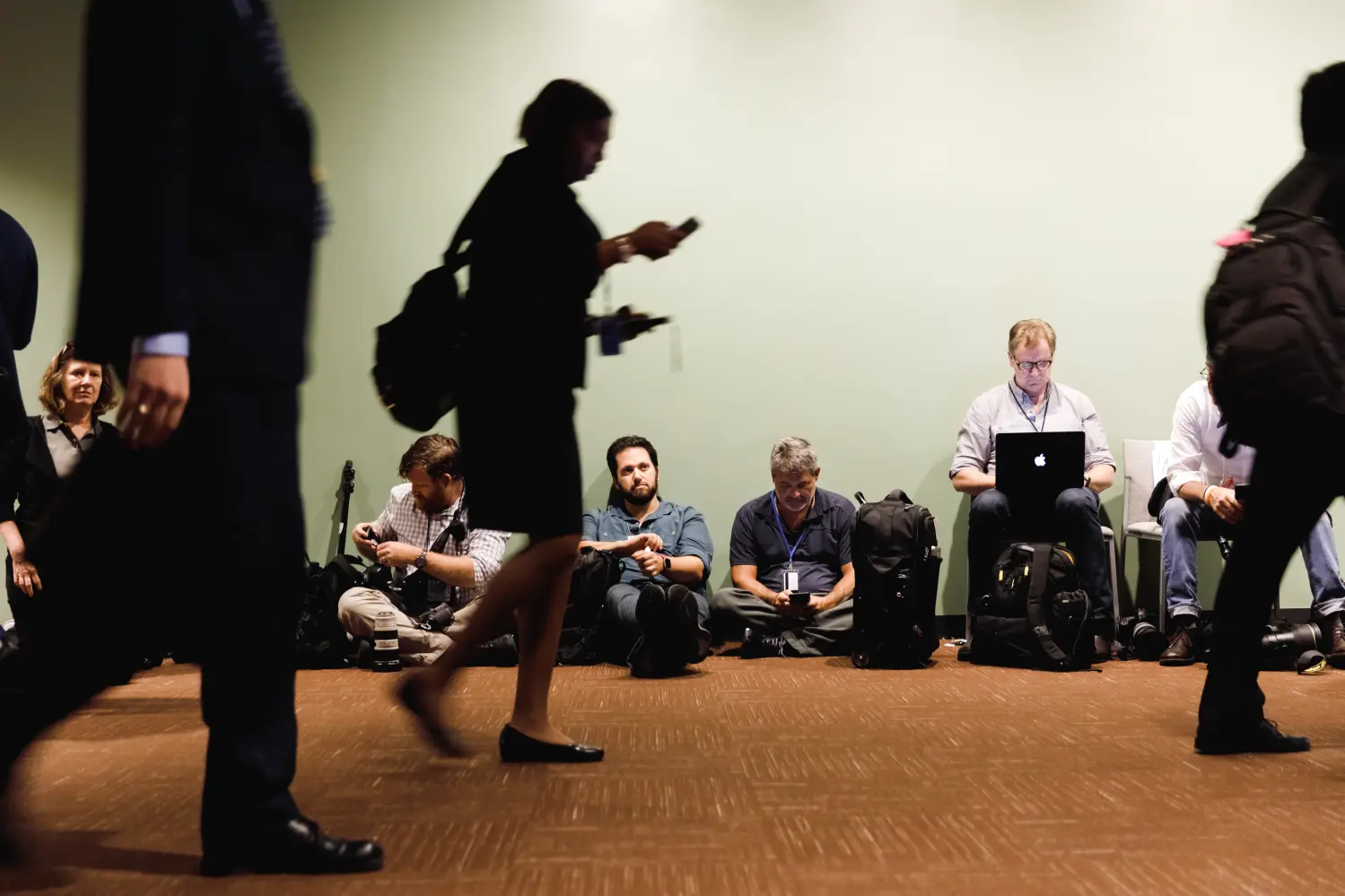This essay is part of “The SDG second half: Ideas for doing things differently.”
“Boring U.N. stuff,” the global journalistic profession seems to have collectively concluded early on about the Sustainable Development Goals (SDGs), before moving swiftly on to more interesting fare—of which, it is true, the past few years have offered a plentiful supply, what with Trump, COVID-19, Ukraine, Harry and Meghan, and other surefire headline grabbers.
Yet the media will likely have far more to say about the SDGs as the 2030 end date approaches. Any race against the clock generates tension, drama, and big decisions to report on as the deadline draws near.
More subtly, the COVID-19 pandemic has provided tangible evidence of why taking the sort of broad approach adopted for the SDGs makes sense by highlighting how thoroughly interconnected are issues of personal and planetary health, exclusion, and inequality. Reporting on the interconnections between the various problems the world faces during this era of polycrisis should be far easier for a journalist to pitch to an editor post-pandemic. The smarter newsroom bosses are more likely to recognize that their writers should look beyond their narrow domain expertise to see the bigger picture. Asking a writer “how does your story relate to the SDGs?” could become a useful shorthand for editors wanting to encourage the use of a more panoramic reporting lens.
The smarter newsroom bosses are more likely to recognize that their writers should look beyond their narrow domain expertise to see the bigger picture. Asking a writer “how does your story relate to the SDGs?” could become a useful shorthand for editors wanting to encourage the use of a more panoramic reporting lens.
Business journalism may lead the rest of the profession in doing this kind of reporting, as the transformation demanded by the SDGs is becoming increasingly material to the companies and investors they write about.
During last year’s 17 Rooms flagship process, hosted by the Center for Sustainable Development at the Brookings Institution and The Rockefeller Foundation, leading business media editors gathered in “Room 12,” a working group focused on actionable next steps for SDG 12 centered around responsible consumption and production. All of the editors said their organizations are now taking the SDGs—and their parallel yardstick in the business world, ESG (environment, social, governance)—far more seriously than they used to, and they expected their interest to keep growing. They also increasingly see a need to upgrade their newsrooms with the expertise needed to cover this story in a sophisticated way.
Business pressures from content consumers, advertisers, and conference sponsors are all helping push things in the right direction, but the biggest motivator is that this is no longer “boring U.N. stuff.” There is now a real story to report on, with real CEOs and successful investors wanting to talk about the profits, opportunities, and risks that abound on the road to SDG world.
Business editors first started to get it when companies started pledging to become carbon “net-zero.” What could be more natural for an editor than to have reporters look into how exactly these companies proposed to make this transformation, whether their strategy made any sense, and whether they were actually implementing it.
As ESG now moves center stage politically in the U.S. and globally, serious media, especially those with decent business coverage, will likely do what it does best: report, inform, educate, and hold decisionmakers to account.
However superficial the Punch-and-Judy political debate about ESG may seem compared to the seriousness of underlying environmental, social, and economic challenges of global sustainable development, it does stem from serious questions about the extent to which business should, can, and does make genuine efforts to improve the state of the world. Mobilizing the media to answer these questions is just what the SDGs need.
Indeed, a more engaged media will increase general awareness of why the Global Goals are needed, and what will be required to get the job done. It will highlight what is working, and more painfully, highlight failures and a good deal of humbug in private-sector ESG/SDG initiatives. If that latter part hurts, it should also inspire learning and a determination to do better in future. For the SDGs, it will certainly beat being ignored.




